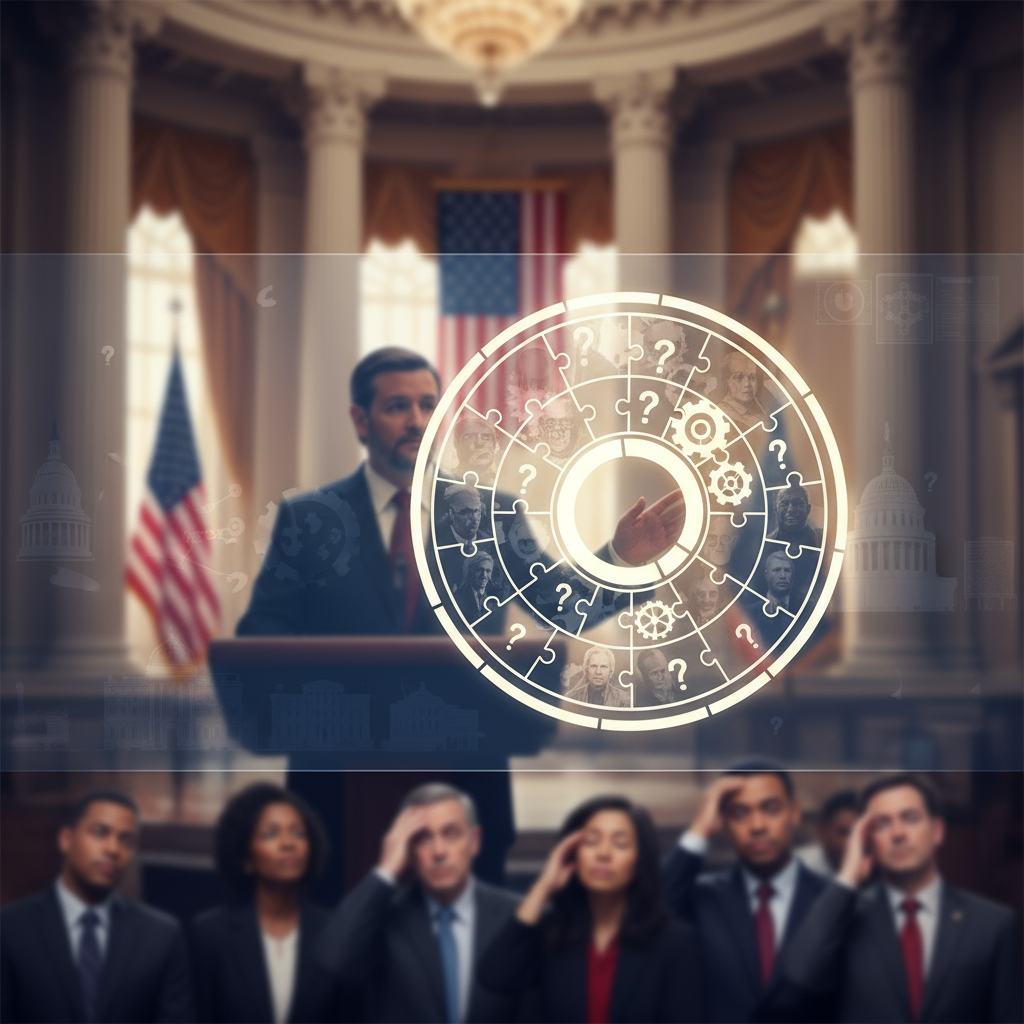The ‘Impossible Challenge’: Why Remembering Recent History Isn’t Always Easy (Even for Senators)
Ah, the internet. A place where even the most seemingly straightforward questions can accidentally (or intentionally) morph into viral sensations, sparking debate, humor, and a surprising amount of introspection. Recently, a Reddit post caught fire with a seemingly innocuous, yet devilishly framed, challenge: “Senator Cruz Figure Out Who Was President From 2018 To 2020 Challenge; Impossible.” The implication is clear – a jab at Senator Ted Cruz, suggesting a possible blind spot regarding recent historical facts, perhaps even highlighting a broader societal issue with remembering or acknowledging specific periods. But beyond the political jest, this “impossible” challenge opens up a fascinating discussion about how we perceive, remember, and sometimes distort recent history.
Let’s dive into why, even for public figures, pinpointing presidential terms might not always be as straightforward as it seems, and what this meme-worthy moment tells us about our collective memory.
The Slippery Nature of Recent Memory
On the surface, asking who was president during a specific, recent three-year span seems incredibly easy. After all, 2018-2020 was a tumultuous period, marked by significant political events, global crises, and a constant news cycle. For anyone even remotely engaged with current events, the answer should roll right off the tongue. So, why the “impossible” label? The humor, and indeed the sting, of the challenge lies in the assumption that someone like Senator Cruz, a prominent political figure, *should* instantly know this. The ‘impossibility’ isn’t about the factual difficulty, but rather a playful jab at perceived political amnesia or deliberate obfuscation.
However, it’s worth considering the psychological aspects of memory. We often remember events, not precise dates or linear timelines. For many, the Trump presidency, for example, is remembered as a singular, intense era, and the beginning and end dates might blur into a general impression. Furthermore, political figures often operate within a narrative framework, and sometimes, inconvenient truths or specific details might be less emphasized or even bypassed for strategic reasons. This isn’t necessarily a sign of a bad memory, but a reflection of how information is processed and recalled within a specific context.
The “Challenge” as Political Commentary
The Reddit post isn’t just a random query; it’s a pointed piece of political commentary. By framing the question as an “impossible challenge” for Senator Cruz, the original poster is doing more than merely asking for a fact. They are implying a political narrative at play. The years 2018-2020 fall square in the middle of a very specific presidential term, one that still generates significant discussion and passionate opinions from all sides of the political spectrum.
This “challenge” cleverly uses a simple factual question to open a door to deeper political criticism. Is it suggesting a willful ignorance? A strategic forgetting? Or simply highlighting a perceived inconsistency in how politicians might address or reference certain periods of history? The ambiguity is part of its power. It forces the audience to ponder the underlying reasons for such a “challenge” being posed in the first place.
Beyond the Jab: A Reflection on Collective Memory and Disinformation
While the “Senator Cruz Challenge” is primarily aimed at one political figure, it inadvertently touches upon a larger societal issue: our collective memory in the age of information overload and disinformation. In a world saturated with news, opinion, and rapidly changing narratives, how do we, as a society, retain accurate historical understanding, especially of recent events?
The ease with which certain facts can be debated, denied, or reinterpreted and the proliferation of echo chambers contribute to a landscape where even seemingly undisputed truths can become contested. If a prominent political figure were to genuinely struggle with such a question (hypothetically, of course), it could be seen as an alarming symptom of a broader issue where objective reality is increasingly subjective. The joke, then, serves as a canary in the coal mine, prompting us to consider the robustness of our shared historical record and the potential for selective memory, both individual and collective.
Conclusion: The Enduring Power of a Simple Question
The “Senator Cruz Figure Out Who Was President From 2018 To 2020 Challenge; Impossible” is more than just a playful meme or a political barb. It’s a testament to the power of a simple, well-placed question to provoke thought, generate discussion, and even highlight deeper societal concerns. It reminds us that while facts might be absolute, our recall and interpretation of them are often shaped by context, bias, and the narratives we choose to embrace. So, the next time you hear a seemingly obvious historical question, take a moment to consider not just the answer, but what makes someone ask it in the first place. You might just uncover a whole lot more.
